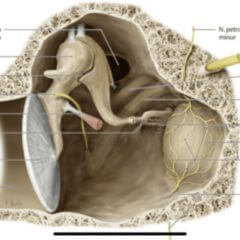Entzündung
Synonyme: Inflammatio (lat.), Inflammation
Englisch: inflammation
1. Definition
Unter einer Entzündung versteht man die lokale und systemische Reaktion eines biologischen Systems auf einen inneren oder äußeren Reiz, der die physiologischen Abläufe gefährdet. Das Ziel der Entzündung ist es, den schädigenden Reiz zu beseitigen und die Voraussetzungen für Reparaturvorgänge ("Heilung") zu schaffen. Die Entzündung ist damit ein Ausdruck der Immunreaktion eines Organismus.
2. Hintergrund
Die Entzündungsreaktion ist ein komplexer Prozess, an dessen Regulation unter anderem immunkompetente Zellen, Antikörper und Entzündungsmediatoren beteiligt sind.
siehe auch: Akute-Phase-Reaktion
3. Nomenklatur
Die Entzündung eines bestimmten Organs bzw. Gewebes wird in den meisten Fällen systematisch durch die Verwendung der Endung "-itis" hinter dem griechischen Namen des Organs signalisiert, zum Beispiel:
- Entzündung der Haut: Dermatitis
- Entzündung der Urethra: Urethritis
- Entzündung des Myokards: Myokarditis
- Entzündung der Hirnhäute: Meningitis
4. Einteilung
4.1. ...nach zeitlichem Verlauf
- akute Entzündung
- subakute Entzündung
- chronische Entzündung
- primär chronische Entzündung
- sekundär chronische Entzündung
- rezidivierende Entzündung
- perakute Entzündung
4.2. ...nach Ausbreitung
- lokale Entzündung
- generalisierte Entzündung
- metastatische Entzündung
4.3. ...nach Spezifität
4.4. ...nach makroskopischem Aspekt
4.5. ...nach histologischem Aspekt
4.6. ...nach Erreger
- bakterielle Entzündung
- virale Entzündung
- mykotische Entzündung
5. Symptomatik
Die 5 klassischen lokalen, akuten Entzündungszeichen (Kardinalsymptome) sind:
- Rötung ("rubor")
- Schwellung ("tumor")
- Schmerz ("dolor")
- Überwärmung ("calor")
- Eingeschränkte Funktion ("functio laesa")
Die ersten vier klassischen Entzündungszeichen wurden von Celsus (ca. 30 v. Chr. – 38 n. Chr.) beschrieben. Das fünfte Zeichen ("functio laesa") wurde später von Galen ergänzt, dessen Autorenschaft jedoch umstritten ist. Möglicherweise geht es auch auf Thomas Sydenham oder Rudolf Virchow zurück.[1]
Neben diesen lokalen Entzündungszeichen können sich - in Abhängigkeit von der Schwere der Entzündung - auch Zeichen einer Allgemeinreaktion des Körpers einstellen. Dazu zählen zum Beispiel:
5.1. Labor
In der Labormedizin werden unter anderem folgende Parameter zur Feststellung einer Entzündung untersucht:
- Blutsenkungsgeschwindigkeit (BSG)
- C-reaktives Protein (CRP)
- Blutbild (Leukozytenzahl) (BB)
- Differentialblutbild (Diff.-BB)
- Procalcitonin (PCT)
- Tumornekrosefaktor-α (TNF-α)
6. Einzelnachweise
- ↑ Robbins SL, Cotran RS, Kumar V, Collins T (1998). Robbins Pathologic Basis of Disease. Philadelphia: W.B Saunders Company.








